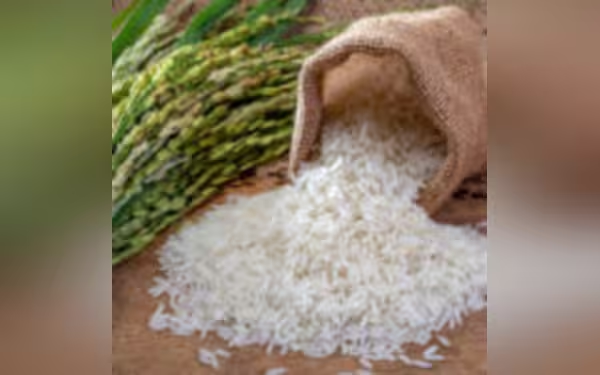Friday, October 4, 2024 08:30 AM
Inquiry Committee Formed to Address Pakistan Rice Export Challenges
- High-level committee investigates rice export interceptions in EU.
- Contaminated rice shipment raises food safety concerns.
- Need for a federal food safety authority highlighted.
 Image Credits: pakistantoday
Image Credits: pakistantodayPakistan forms inquiry committee to investigate rice export issues and improve food safety standards amid EU interceptions.
In recent times, the federal government of Pakistan has been facing significant challenges in the agricultural sector, particularly concerning the export of rice. Amid ongoing investigations into a wheat scandal, the Prime Minister has taken a decisive step by forming a high-level inquiry committee. This committee is tasked with investigating the increasing number of rice consignments being intercepted in the European Union (EU). The situation has raised eyebrows, especially given the complaints from Ahmad & Kamran Traders, a commercial fumigator and clearing agent, regarding the handling of rice exports.
The committee, led by former Federal Secretary Shahid Khan, comprises several key officials, including representatives from the Ministry of National Food Security and Research (MNFSR), the Federal Board of Revenue (FBR), and the Rice Exporters Association of Pakistan (REAP). Their primary objective is to delve into the reasons behind the non-compliance with food safety standards that have resulted in these interceptions. This investigation is crucial, as it directly impacts Pakistan's reputation in international trade.
One of the pressing issues at hand is the recent interception of a Pakistani rice shipment found to be contaminated with genetically modified organisms (GMOs). This incident has raised serious concerns about the effectiveness of the Federal Seed Certification and Registration Department (FSCRD) and the Pakistan Agricultural Research Council (PARC), which are responsible for ensuring that rice varieties meet safety standards. The EU's notification regarding the contamination of an organic Basmati rice consignment has put additional pressure on these agencies to improve their testing and registration processes.
Interestingly, while Pakistan's rice interceptions have ranged from 17 to 77 over the past five years, these figures are relatively low compared to other countries like India and China, which have faced significantly higher interception rates. This suggests that while Pakistan is not the worst offender, the country still needs to address the underlying issues that lead to these interceptions. The lack of a dedicated food safety authority at the federal level has been a long-standing problem, hindering effective regulation of food products.
Moreover, the recent amendments to the Pakistan Plant Quarantine Rules have empowered inspectors to conduct food safety inspections at ports. However, the current inquiry committee's composition has raised concerns, as it includes intelligence and law enforcement officials but lacks technical experts in plant quarantine and food safety. Industry experts argue that the real issue lies not with the Department of Plant Protection (DPP) but with the absence of a comprehensive federal food safety authority.
As the committee embarks on its investigation, it is essential to consider the broader implications of these findings. The agricultural sector is a vital part of Pakistan's economy, and ensuring the safety and quality of exports is crucial for maintaining international trade relationships. The committee's recommendations could pave the way for much-needed reforms in the inspection and certification processes, ultimately benefiting both farmers and consumers.
While the formation of this inquiry committee is a step in the right direction, it is imperative that the government addresses the systemic issues plaguing the agricultural sector. By fostering a robust food safety framework and ensuring compliance with international standards, Pakistan can enhance its reputation as a reliable exporter of quality agricultural products. The road ahead may be challenging, but with the right measures in place, the country can turn these challenges into opportunities for growth and improvement.













